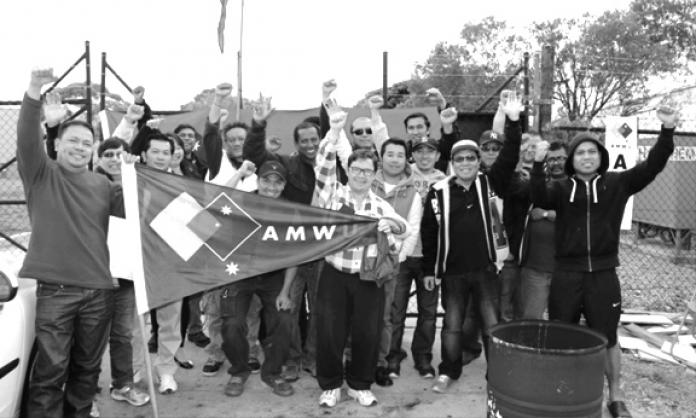It’s unlike other pickets I have visited. There’s a steady and sure confidence about the 54 Australian Manufacturing Workers Union members on strike at Bitzer. They are rounding out their third week out the gate. Their picket runs 24 hours a day outside the cooling equipment manufacturer’s Sunshine factory in Melbourne’s west.
The mood of National Union of Workers members at the Pinnacle bakery in Altona, a few suburbs away, is different. Their anger is palpable. They weren’t out indefinitely like the Bitzer workers, but when they struck, a genuine excitement was evident.
Both groups of workers are renegotiating their enterprise agreements. Both are facing employers keen to seriously erode wages, conditions and job security.
Joey, a delegate at Bitzer, describes the company’s plans to introduce two rates of pay for workers doing the same job, reduce redundancy pay and cut rostered days off and other forms of leave.
A two-tier workforce is on the cards for workers at Pinnacle as well. Andy Giles, NUW organiser, says that the company wants to pay new starts as little as $18 an hour, or around $500 a week. Pinnacle is one of the country’s biggest pastry and doughnut producers. It wants to be able to make its casual workforce permanent but pay these workers around $4 an hour less than existing permanents.
At Bitzer, the workers’ confidence is born of an awareness of their strategic importance to the company. Bitzer’s Sunshine factory is a key site in production for a company that supplies evaporative cooling units to commercial enterprises around the globe. Many of the workers are from migrant backgrounds and carry with them radical traditions from their home countries, which include India, Sri Lanka and Vietnam.
They have fought and won in the past and know they can do it again. In the last 10 years, Bitzer workers have struck four times, the longest running for six weeks. “It’s just what you do”, Pardeep, who has worked there for nine years, told Red Flag. “You want better conditions, you have to come out and fight; otherwise you just have to take what they give you”, he said. “Once we go on strike, we really should be raising the pay demands every week to make up for our sacrifice.”
Lynn, one of the first female welders at the site, seemed to share the ethos of picket line veterans even though this was her first strike. When asked how long she thought the strike would last, she shrugged and said with a smile, “As long as it takes, maybe six weeks, maybe more”.
Over at Pinnacle, many workers were also striking for the first time. According to Giles, they were outraged by the company’s claim, which amounted to a real wage freeze and an attack on important conditions.
When union members walked out on strike, managers openly mocked them, saying, “We don’t need you anyway”. Later, when scabs were prevented from leaving the factory at the end of their shift, the same managers were forced to negotiate their passage with the strikers and had to retract earlier threats about repercussions for striking.
Bitzer workers have already voted to reject an improved but unsatisfactory new offer from the company. Pinnacle workers are expected shortly to vote on a new offer.
Both struggles are an example of the fight needed to improve job security. These workers know that it’s not quiet compromise that will protect their jobs and conditions but an open and determined fight.
The Bitzer workers welcome solidarity visits to their picket at the Strezlecki Avenue, Sunshine.











